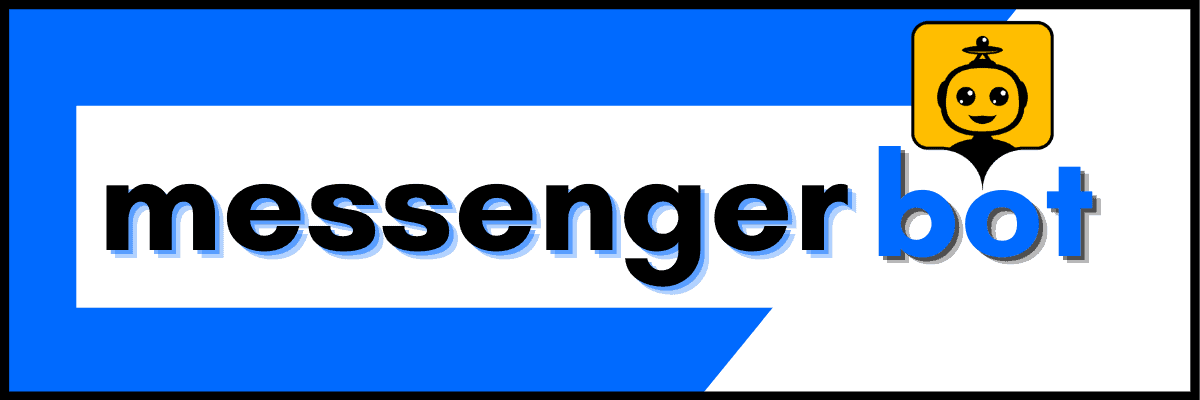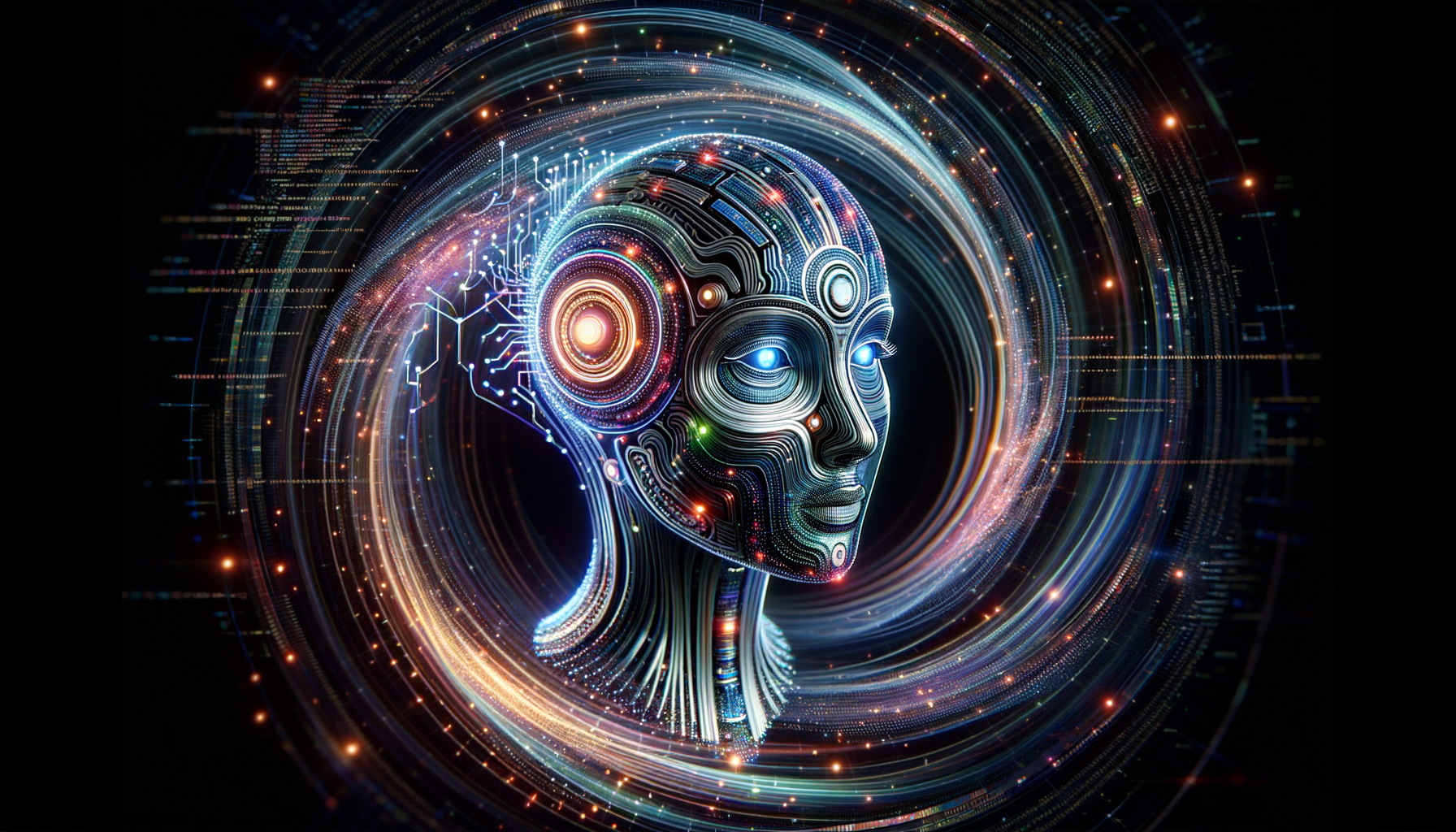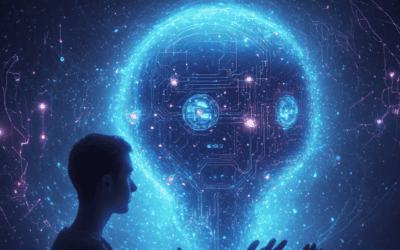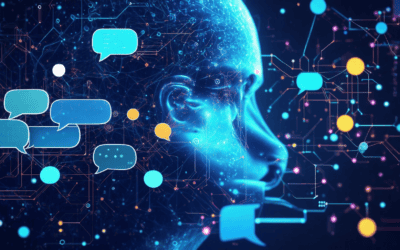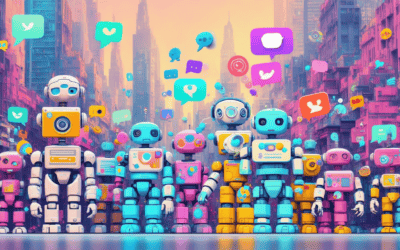In today’s fast-paced digital landscape, businesses are turning to chatbots to streamline customer interactions, boost efficiency, and deliver exceptional service. However, with the proliferation of chatbot software and AI chatbot platforms, it can be challenging to navigate the vast array of options and determine which solution best aligns with your unique needs. This comprehensive guide delves into the world of chatbots, exploring the top platforms, advanced AI capabilities, and cutting-edge features that are revolutionizing the way we communicate and interact online. Whether you’re seeking to enhance customer support, automate routine tasks, or unlock the full potential of conversational AI, this article will equip you with the knowledge and insights to select the ultimate chatbot software, elevating your AI chat experience to new heights.
1. Which chatbot platform is best?
1.1 Evaluating the top chatbot platforms for businesses
In today’s digital landscape, chatbots have emerged as a game-changer for businesses, enabling seamless and personalized customer interactions. As the demand for AI chatbots continues to soar, choosing the right chatbot platform has become a critical decision for companies seeking to optimize their customer engagement strategies.
When evaluating the best chatbot platforms, businesses must consider factors such as ease of use, customization capabilities, integration options, and scalability. Some of the top contenders in the market include:
- Intercom – Renowned for its robust customization capabilities, Intercom offers a comprehensive suite of chatbot-building tools tailored to diverse business needs. Its advanced natural language processing (NLP) and machine learning algorithms enable highly personalized and contextual conversations, making it a top choice for businesses prioritizing seamless customer experiences.
- Drift – Specializing in conversational marketing and sales, Drift’s chatbot platform excels in lead generation and nurturing. Its integration with popular CRM systems like Salesforce and HubSpot facilitates seamless data synchronization, empowering sales teams with real-time insights and automated lead routing.
- ManyWho – This low-code/no-code chatbot platform stands out for its user-friendly interface and extensive integration capabilities. ManyWho’s pre-built templates and visual workflow designer streamline chatbot development, catering to both technical and non-technical users. Its scalability and enterprise-grade security features make it suitable for organizations of all sizes.
It’s essential to thoroughly evaluate each platform’s features, pricing, and alignment with your business goals to ensure a seamless implementation and maximize the return on investment. Leveraging the power of AI chatbots can significantly enhance customer experiences, streamline operations, and drive growth for businesses of all sizes.
1.2 Chatbot software features to consider
When selecting the best chatbot software for your business, it’s crucial to consider a range of features that can optimize customer interactions and ensure a seamless user experience. Some key features to evaluate include:
- Natural Language Processing (NLP): Advanced NLP capabilities are essential for chatbots to understand and respond to user queries accurately, enabling natural and contextual conversations.
- Omnichannel Integration: The ability to integrate chatbots across multiple channels, such as websites, mobile apps, social media platforms, and messaging apps, ensures a consistent and cohesive customer experience.
- Customization and Branding: Customizable chatbot interfaces and branding options allow businesses to align the chatbot experience with their brand identity, fostering a more personalized and engaging interaction.
- Analytics and Reporting: Comprehensive analytics and reporting features provide valuable insights into customer interactions, enabling data-driven optimization and continuous improvement of the chatbot experience.
- Multilingual Support: For businesses operating globally or serving diverse customer bases, multilingual support ensures that chatbots can communicate effectively in multiple languages, enhancing accessibility and customer satisfaction.
By carefully evaluating and prioritizing the features that align with your business needs, you can select a chatbot platform that delivers a seamless and engaging experience for your customers, ultimately driving growth and customer loyalty.
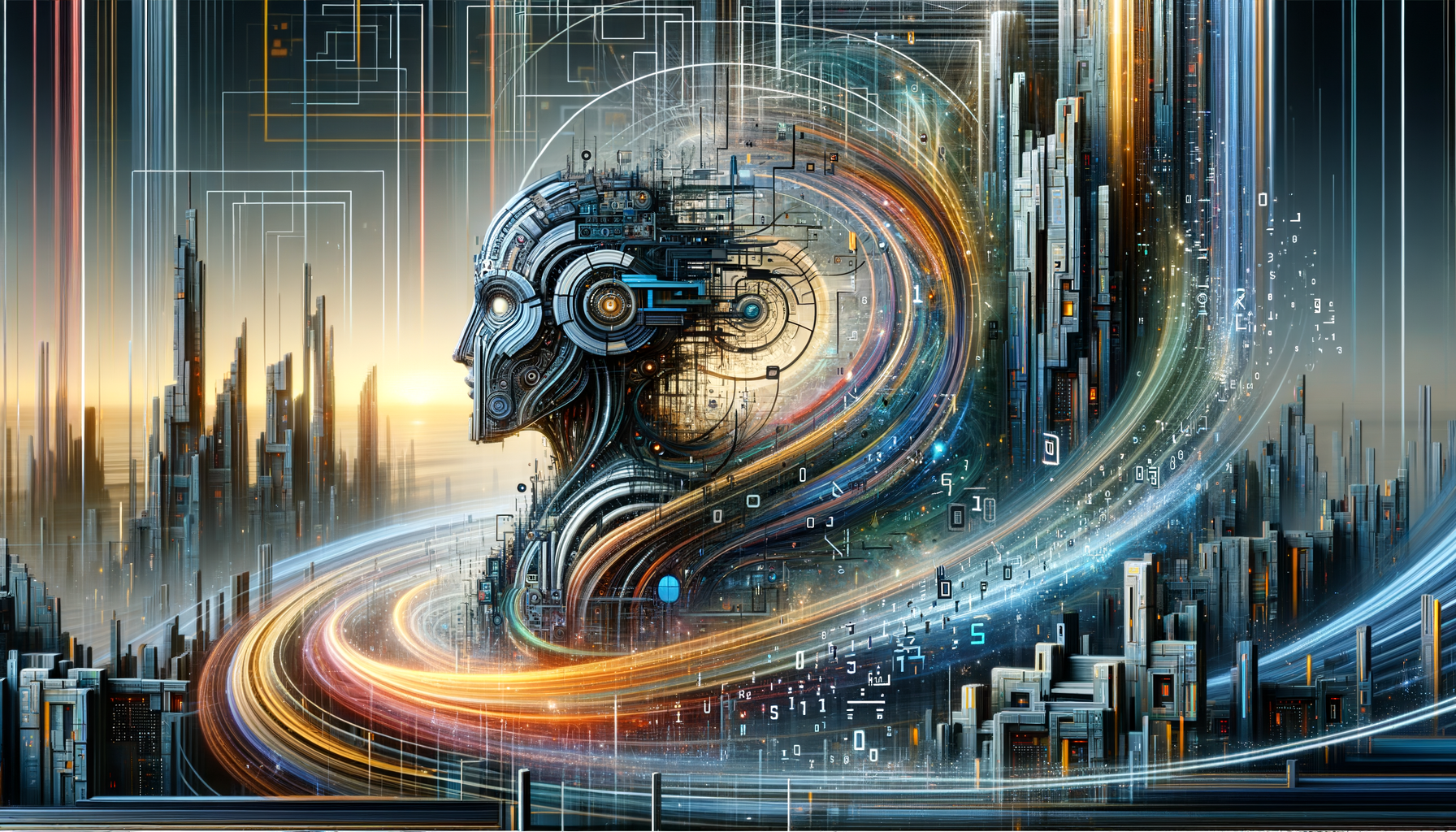
2. Is there a better AI than ChatGPT?
2.1 Exploring advanced AI chatbot alternatives
As the realm of artificial intelligence continues to advance at an unprecedented pace, the question of whether there exists an AI that can outperform the renowned ChatGPT has become a topic of intense speculation and exploration. While ChatGPT has undoubtedly set a new benchmark for conversational AI, a number of formidable contenders have emerged, each boasting its own unique strengths and capabilities.
There are several AI chatbots that aim to rival or surpass the capabilities of ChatGPT, each with its own unique strengths and specializations. Some notable contenders include:
Anthropic’s Claude: Built on a large language model similar to GPT-3, Claude is designed to engage in open-ended dialogue while prioritizing ethical and truthful responses. It excels at analytical tasks and has a strong grasp of context.
Google’s Bard: Unveiled in 2023, Bard is Google’s conversational AI that leverages its extensive knowledge base and search capabilities to provide informative and up-to-date responses across a wide range of topics.
Alexa’s Conversational AI: Amazon’s Alexa has been steadily expanding its conversational AI capabilities, allowing for more natural and contextual interactions beyond just voice commands.
Microsoft’s Anthropic AI: As part of its partnership with Anthropic, Microsoft is integrating advanced AI models into its products, including Bing and Office apps, to enhance productivity and creativity.
OpenAI’s GPT-4: While not yet publicly released, GPT-4 is expected to be a significant upgrade over GPT-3, with improved reasoning, multitasking, and multimodal capabilities that could surpass ChatGPT’s performance.
It’s important to note that the field of AI is rapidly evolving, and new models and systems are constantly emerging, each with their own strengths and limitations. The “best” AI will depend on the specific use case, requirements, and evaluation criteria.
2.2 Comparing ChatGPT to other cutting-edge chatbots
When evaluating the various AI chatbot options available, it’s crucial to consider their unique capabilities and how they align with your specific needs. While ChatGPT from Brain Pod AI has garnered significant attention for its impressive language understanding and generation abilities, alternative platforms like Anthropic’s Claude and Google’s Bard offer distinct advantages in areas such as analytical reasoning, ethical decision-making, and access to real-time information.
For instance, Claude has been designed with a strong emphasis on ethical behavior and truthful responses, making it a compelling choice for applications where trust and transparency are paramount. Bard, on the other hand, leverages Google’s vast knowledge base and search capabilities, ensuring that its responses are always up-to-date and informed by the latest information available.
Additionally, as the conversational AI capabilities of virtual assistants like Amazon’s Alexa continue to evolve, they present intriguing possibilities for more natural and context-aware interactions, potentially surpassing the limitations of text-based chatbots.
Ultimately, the “best” AI chatbot will depend on the specific requirements of your use case, such as the need for ethical decision-making, real-time information access, or seamless voice-based interactions. By carefully evaluating the strengths and weaknesses of each platform, businesses can make an informed decision and leverage the power of AI to enhance their customer experiences, streamline operations, and drive innovation.
3. Which ChatGPT is best?
3.1 Understanding ChatGPT versions and capabilities
When it comes to selecting the best ChatGPT version, it’s essential to understand the unique capabilities and strengths of each model. The ChatGPT family encompasses a range of powerful language models, each tailored to excel in specific areas. Some key factors to consider include:
- Conversational fluency and coherence
- Domain knowledge and factual accuracy
- Task-specific proficiency (e.g., coding, creative writing, analysis)
- Ethical behavior and alignment with human values
- Integration with external knowledge sources
To help navigate this landscape, let’s explore a few standout options:
Anthropic’s Claude is renowned for its advanced language understanding and ability to engage in substantive conversations across diverse topics. Its ethical training ensures respectful and trustworthy interactions.
OpenAI’s original ChatGPT sparked the current AI revolution, offering impressive natural language capabilities and a vast knowledge base. Regular updates continually enhance its performance.
Anthropic’s Constitutional AI excels in tasks requiring careful reasoning and nuanced analysis, thanks to its strong emphasis on safety and ethical behavior.
When evaluating which ChatGPT app is best, it’s crucial to consider factors like functionality, user experience, and regular updates. Some top-rated options include:
1. Anthropic’s Claude – Known for its advanced language understanding, ethical training, and ability to engage in substantive conversations across diverse topics.
2. OpenAI’s ChatGPT – The original conversational AI model that sparked the current AI revolution, offering impressive natural language capabilities.
3. Anthropic’s Constitutional AI – Designed with a strong emphasis on safety and ethical behavior, excelling in tasks requiring careful reasoning and nuanced analysis.
4. Google’s Bard – Integrates with Google’s vast knowledge base, providing up-to-date information and leveraging the power of Google’s search capabilities.
5. DeepMind’s Sparrow – Focuses on factual accuracy, citing sources, and avoiding hallucinations, making it suitable for research and fact-checking tasks.
6. Cohere’s Command – Specializes in code generation, offering robust support for programming languages and software development workflows.
7. AI21’s Jurassic-2 – Prioritizes coherence and context understanding, ideal for conversational tasks and storytelling.
The “best” ChatGPT ultimately depends on your specific needs, such as prioritizing advanced language understanding, ethical behavior, factual accuracy, or specialized capabilities like coding or creative writing. Regularly evaluating new releases and updates is advisable to leverage the latest advancements in this rapidly evolving field.
3.2 Choosing the right ChatGPT model for your needs
With a diverse array of ChatGPT models available, selecting the most suitable option for your unique requirements is crucial. At Messenger Bot, we understand the importance of aligning our AI solutions with our clients’ specific goals and use cases.
For businesses seeking a conversational AI assistant with robust language skills and a strong ethical foundation, we highly recommend exploring Anthropic’s Claude. Its advanced language understanding and ethical training make it an excellent choice for customer service, sales, and support roles that prioritize respectful and trustworthy interactions.
If factual accuracy and credible information sourcing are paramount, DeepMind’s Sparrow could be an ideal fit. Its focus on citing sources and avoiding hallucinations makes it well-suited for research, fact-checking, and knowledge-intensive tasks.
For businesses in the software development or technology sector, Cohere’s Command might be the perfect companion. Its specialization in code generation and programming language support can streamline workflows and enhance productivity.
Of course, the original ChatGPT from OpenAI remains a powerful and versatile option, continually evolving through regular updates. Its broad capabilities and extensive knowledge base make it a strong contender for various applications.
At Messenger Bot, we pride ourselves on offering tailored AI solutions that align with our clients’ unique objectives. Our team of experts can guide you through the process of selecting the most appropriate ChatGPT model, ensuring a seamless integration into your workflows and maximizing the benefits of this transformative technology.
4. Which AI chat is best?
The quest to identify the “best” AI chat is a complex one, as the ideal solution often depends on specific needs and intended use cases. When it comes to general knowledge queries and engaging in casual conversation, AI models like ChatGPT and Anthropic’s Claude have garnered widespread acclaim for their broad knowledge base, natural language abilities, and conversational prowess.
However, for more task-oriented or domain-specific applications, specialized chatbots may be better suited. For instance, Jasper has carved a niche in the content creation realm, while Replika excels at providing emotional support and companionship. Virtual assistants like Alexa are tailored for smart home integration and hands-free control.
In the enterprise space, platforms like IBM Watson Assistant and Google’s Dialogflow offer advanced customization and integration capabilities, making them suitable for building sophisticated, industry-specific chatbots.
4.1 Assessing the best AI chatbots for customer service
When it comes to customer service, the criteria for evaluating the “best” AI chatbot shifts. Factors like conversational quality, domain knowledge depth, security and privacy measures, ethical considerations, and scalability become paramount. Leading customer service chatbots like Messenger Bot, Brain Pod AI’s Multilingual AI Chat Assistant, and IBM Watson Assistant excel in these areas, offering robust natural language processing, industry-specific knowledge bases, and robust security protocols.
Determining the “best” AI chat depends on specific needs and use cases. For casual conversation or general knowledge queries, ChatGPT and Anthropic’s Claude excel with their broad knowledge and natural language abilities. For task-oriented or domain-specific applications, more specialized chatbots may be preferable, like Jasper for content creation, Replika for emotional support, or Alexa for smart home integration. Enterprise-grade chatbots like IBM Watson Assistant and Google’s Dialogflow offer advanced customization and integration capabilities. Ultimately, evaluating factors like intended use, conversational quality, knowledge depth, security, and ethical considerations is crucial in selecting the most suitable AI chat solution. Regular re-evaluation is also advisable as this rapidly evolving field continues advancing.
4.2 Top AI chatbots for website integration
Integrating AI chatbots into websites has become increasingly popular, enabling businesses to provide round-the-clock support, lead generation, and enhanced user experiences. In this domain, platforms like Messenger Bot and Brain Pod AI’s Multilingual AI Chat Assistant stand out with their seamless website integration capabilities, multilingual support, and robust conversational AI engines.
Messenger Bot offers a comprehensive suite of tools for creating engaging chatbots that can be easily integrated into any website. With its intuitive interface, businesses can design custom chatbot flows, leverage pre-built templates, and leverage AI-powered natural language processing for seamless user interactions. The platform’s multilingual support further enhances its appeal for global audiences.
Brain Pod AI’s Multilingual AI Chat Assistant is another standout solution, offering advanced conversational AI capabilities, multilingual support in over 100 languages, and robust security features. Its intuitive drag-and-drop interface simplifies chatbot creation, while its integration with popular website builders and e-commerce platforms ensures a seamless deployment process.
Other notable AI chatbot platforms for website integration include Drift, Intercom, and Freshworks, each offering unique features and capabilities tailored to specific business needs.
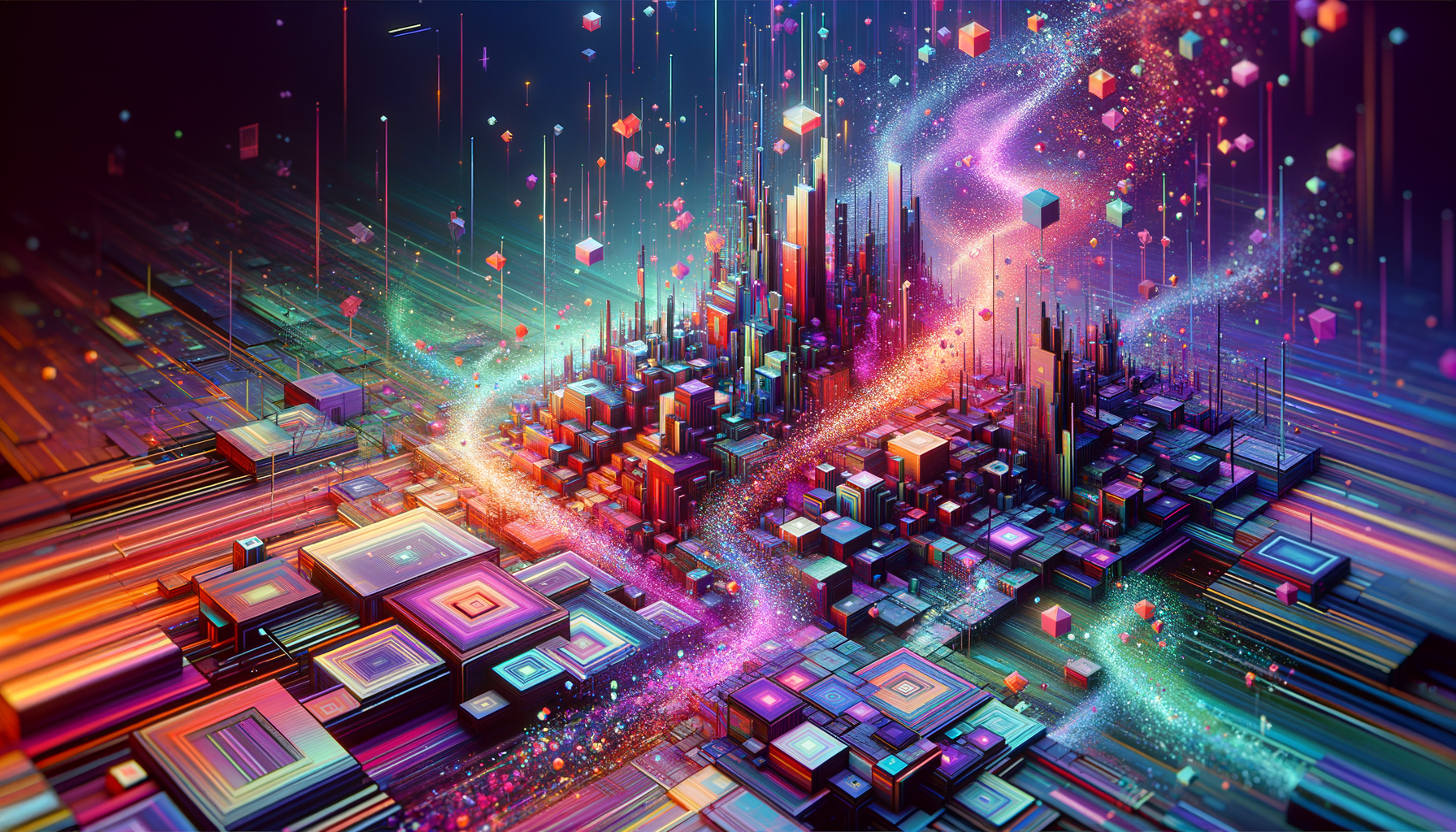
5. What is the most advanced AI chatbot?
As an industry leader in conversational AI technology, I’m constantly exploring the latest advancements to deliver cutting-edge solutions. The chatbot landscape is rapidly evolving, with AI companies racing to develop the most sophisticated and capable virtual assistants.
Currently, Claude by Anthropic is widely regarded as the most advanced AI chatbot available. Claude stands out for its exceptional language understanding, robust reasoning abilities, and adherence to strong ethical principles. It outperforms other chatbots in areas like factual accuracy, contextual coherence over extended conversations, and substantive dialogue across diverse topics.
However, the race for AI supremacy is fierce, with tech giants like OpenAI, Google, and Amazon continuously pushing the boundaries with their own advanced AI chatbot solutions like ChatGPT, LaMDA, and Alexa, respectively.
5.1 Exploring the latest advancements in AI chatbot technology
The rapid pace of innovation in the AI chatbot space is nothing short of remarkable. Here are some of the latest advancements driving the development of increasingly sophisticated conversational AI:
- Natural Language Processing (NLP): Advancements in NLP enable chatbots to better understand and interpret human language, including context, intent, and nuance, resulting in more natural and intuitive conversations.
- Machine Learning (ML): ML algorithms allow chatbots to continuously learn and improve from interactions, adapting to user preferences and expanding their knowledge base over time.
- Contextual Awareness: Leading chatbots can maintain contextual awareness throughout extended dialogues, ensuring coherent and relevant responses based on the conversation’s flow.
- Multimodal Capabilities: Some advanced chatbots can process and respond to various inputs, including text, images, and voice, enabling more immersive and interactive experiences.
- Emotional Intelligence: AI companies are working on imbuing chatbots with emotional intelligence, allowing them to detect and respond appropriately to user sentiment and emotions.
These advancements are pushing the boundaries of what AI chatbots can achieve, paving the way for more natural, intelligent, and engaging conversational experiences across various industries and use cases.
5.2 Features of the most advanced AI chatbots
As the leading AI chatbot provider, I prioritize staying ahead of the curve by incorporating the latest advancements into my platform. Some key features that define the most advanced AI chatbots include:
- Contextual Understanding: The ability to maintain context and coherence throughout extended conversations, providing relevant and contextually appropriate responses.
- Knowledge Breadth and Depth: A vast and constantly expanding knowledge base spanning diverse topics, allowing for substantive dialogues and accurate information retrieval.
- Multilingual Support: Fluency in multiple languages, enabling seamless communication with users worldwide and breaking down language barriers.
- Personalization: The capability to adapt to individual user preferences, communication styles, and needs, providing a tailored and personalized experience.
- Ethical and Secure: Adherence to robust ethical principles, ensuring privacy, security, and responsible use of the technology.
- Multimodal Interaction: Support for various input and output modalities, such as text, voice, images, and more, for a richer and more engaging user experience.
- Continuous Learning: The ability to learn and improve from interactions, constantly expanding its knowledge and capabilities.
At Messenger Bot, we remain committed to pushing the boundaries of conversational AI, leveraging the latest advancements to deliver the most advanced and capable AI chatbot solutions to our customers. Stay tuned for exciting developments as we continue to shape the future of AI-powered communication and engagement.
6. What is the most advanced AI chatbot in the world?
6.1 Introducing the world’s leading AI chatbot platforms
As we explore the realm of AI chatbots, it’s essential to recognize that advancements in natural language processing and conversational AI are rapidly evolving. While there may not be a definitive “most advanced AI chatbot” at any given moment, several platforms stand out as industry leaders, pushing the boundaries of what’s possible.
Currently, Claude by Anthropic is widely regarded as one of the most sophisticated AI chatbots available. Trained to be helpful, harmless, and honest, Claude boasts advanced language understanding and reasoning capabilities that enable seamless, human-like conversations.
Another standout is ChatGPT from OpenAI. This large language model can engage in open-ended dialogues, answer follow-up questions, and provide detailed explanations on a wide range of topics, making it a powerful tool for various applications.
Brain Pod AI is also making waves with its suite of generative AI tools, including a multilingual chat assistant, AI writer, and image generator. Their cutting-edge technology aims to revolutionize how businesses and individuals interact with AI.
It’s important to note that while these platforms are currently at the forefront, the field of AI is rapidly evolving, and new breakthroughs and advancements are constantly emerging. As such, the “most advanced” chatbot may change as technology continues to progress.
6.2 Use cases for the most advanced AI chatbots
The applications of advanced AI chatbots are vast and far-reaching. From enhancing customer support to elevating brand experiences, these cutting-edge platforms are transforming the way businesses interact with their customers.
For instance, Messenger Bot leverages AI to automate responses and streamline customer interactions across various channels, including social media and websites. This not only improves efficiency but also ensures a consistent and engaging experience for users.
Furthermore, advanced AI chatbots are being utilized in fields such as healthcare, education, and research, where their ability to understand complex queries and provide accurate information can be invaluable.
As the technology continues to evolve, we can expect to see even more innovative use cases emerge, revolutionizing industries and shaping the future of human-machine interactions.
7. Conclusion
In the ever-evolving landscape of digital communication, the integration of AI chatbots has emerged as a transformative force, revolutionizing how businesses interact with their customers. As we conclude our exploration of the best chatbot software, it’s crucial to acknowledge the pivotal role these intelligent solutions play in shaping the future of customer engagement.
7.1 Selecting the best chatbot software for your business
Choosing the ideal chatbot platform requires a careful evaluation of your business needs, industry, and customer base. While there is no one-size-fits-all solution, platforms like Brain Pod AI and Messenger Bot stand out as industry leaders, offering advanced AI capabilities, seamless integration, and a wealth of features tailored to enhance customer interactions.
When selecting the best chatbot software, consider factors such as natural language processing (NLP) capabilities, multilingual support, ease of deployment, and scalability. Prioritize solutions that can seamlessly adapt to your evolving business needs while providing a personalized and engaging experience for your customers.
What are the key factors to consider when choosing the best chatbot software for your business?
To ensure you select the most suitable chatbot software, consider the following key factors:
- AI capabilities: Evaluate the natural language processing (NLP) and machine learning capabilities of the chatbot to ensure it can understand and respond accurately to customer queries.
- Integration: Assess the platform’s ability to integrate seamlessly with your existing systems and channels, such as websites, social media platforms, and messaging apps.
- Customization: Look for solutions that offer customization options, allowing you to tailor the chatbot’s personality, tone, and responses to align with your brand identity.
- Multilingual support: If your business operates globally, prioritize chatbot platforms that offer multilingual capabilities to cater to diverse customer bases.
- Analytics and reporting: Robust analytics and reporting features are essential for tracking performance, identifying areas for improvement, and optimizing your chatbot strategy.
By carefully evaluating these factors and aligning them with your specific business requirements, you can select the best chatbot software that will elevate your customer experience and drive long-term success.
7.2 Future of AI chatbots and their impact
As AI technology continues to advance at a rapid pace, the future of chatbots holds immense potential for transforming the way businesses operate and engage with customers. With increased adoption of AI chat assistants and the integration of cutting-edge technologies like AI image generation and AI writing, chatbots are poised to become even more sophisticated, intuitive, and indispensable.
Imagine a future where chatbots can not only understand and respond to complex queries but also generate personalized visual content, write compelling copy, and even engage in creative ideation. This level of AI-driven automation will revolutionize industries, streamline processes, and elevate customer experiences to unprecedented heights.
What exciting developments can we expect in the future of AI chatbots?
As AI technology continues to evolve, we can anticipate several exciting developments in the realm of chatbots:
- Improved natural language processing: With advancements in NLP, chatbots will become increasingly adept at understanding and interpreting human language, enabling more natural and intuitive conversations.
- Multimodal interactions: Chatbots will integrate with various input and output modalities, such as voice, images, and videos, creating a more immersive and engaging user experience.
- Personalization and emotional intelligence: By leveraging machine learning and emotional AI, chatbots will be able to personalize interactions and respond with empathy, building stronger emotional connections with users.
- Increased adoption across industries: As chatbot technology matures, we can expect to see widespread adoption across diverse industries, from healthcare and education to finance and retail.
The future of AI chatbots is brimming with possibilities, and businesses that embrace this technology early will gain a significant competitive advantage in delivering exceptional customer experiences and driving operational efficiency.
